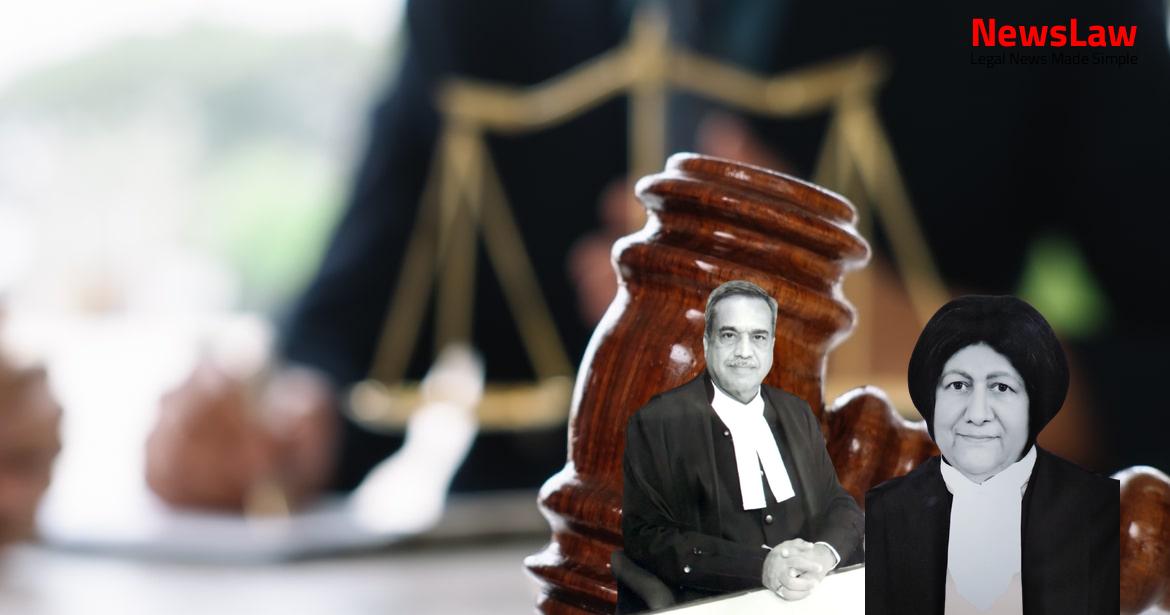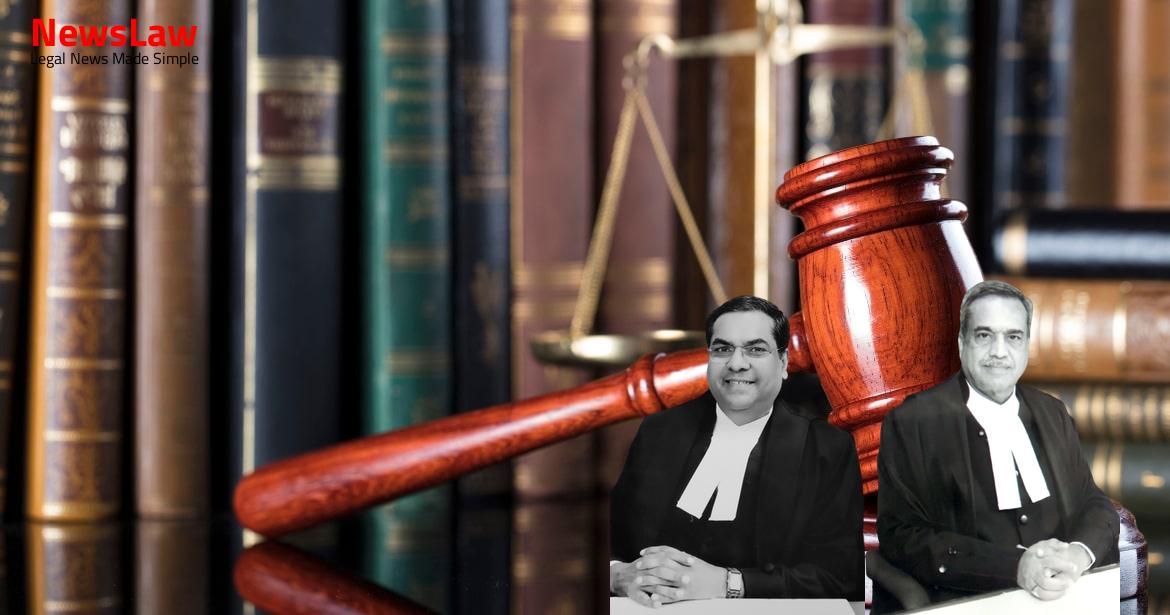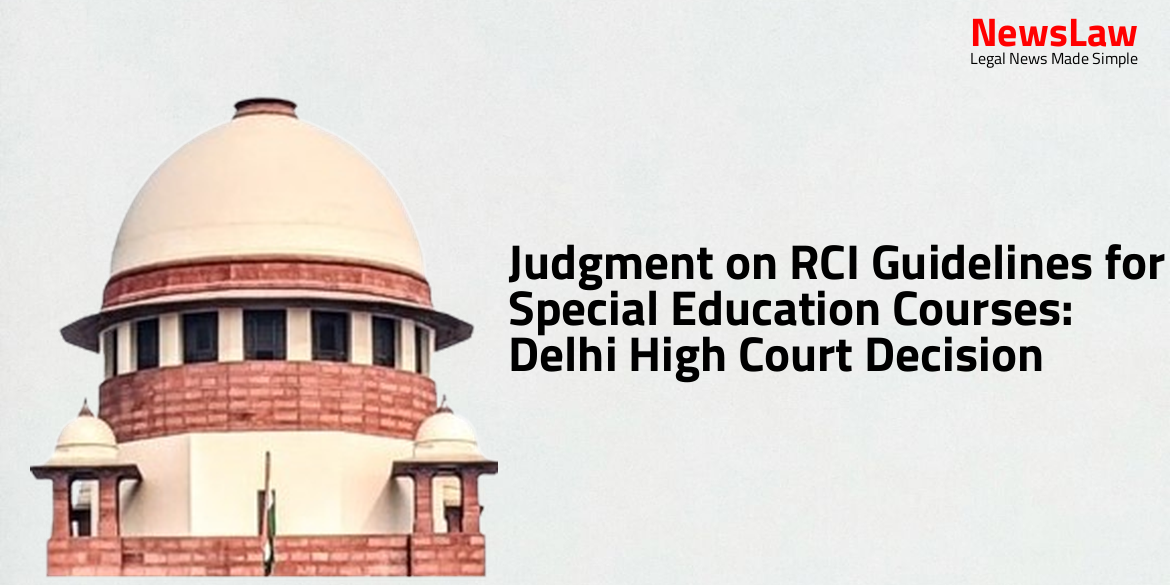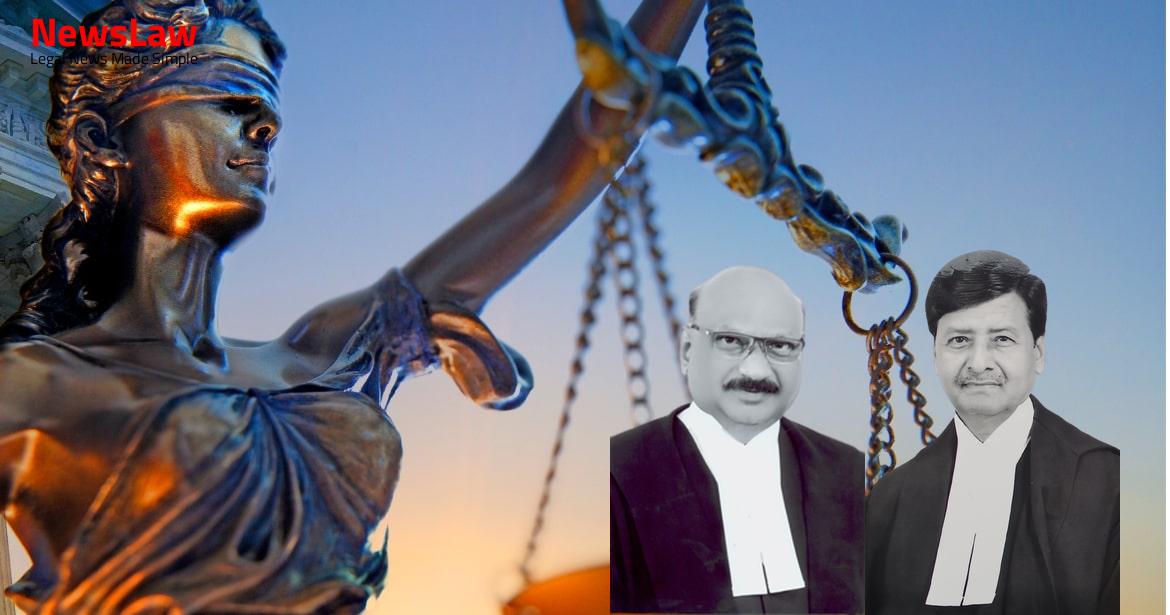In a significant legal ruling, the Supreme Court of India has upheld the decision of the High Court in the case of illegal contract termination. The respondent, who sought unpaid amounts and loss of profit due to the termination, had their claims either fully or partially allowed by the Arbitral Tribunal. The petitioners, aggrieved by the dismissal of their appeal, argued that the termination was not as per contract terms. This judgement sets a precedent in contract law and arbitration matters.
Facts
- The High Court of Jharkhand dismissed the appeal preferred by the petitioners under Section 37 of the Arbitration and Conciliation Act.
- The learned Arbitral Tribunal allowed claims totaling Rs. 2,10,87,304 under different heads, with some claims being partly allowed and others disallowed.
- The award declared by the Arbitral Tribunal was confirmed by the First Appellate Court under Section 34 of the Arbitration Act.
- The High Court further confirmed the award in an appeal under Section 37 of the Arbitration Act.
- The Arbitral Tribunal was constituted after the High Court order.
- The Tribunal consisted of nominees of both parties and a retired Judge as the Presiding Arbitrator.
- The original claimants sought unpaid amounts, loss of profit, and other consequential claims due to termination.
- Original claimants argued the termination was illegal and not as per contract terms.
- The counter-claim by the State sought reimbursement for unsatisfactory performance.
- The Tribunal found the termination to be illegal and not following contract procedures.
Also Read: Supreme Court Judgement on Maharashtra Prevention of Dangerous Activities Act, 1981
Arguments
- The petitioners are aggrieved and dissatisfied with the High Court’s dismissal of the appeal under Section 37 of the Arbitration Act, confirming the arbitral award.
- The learned counsel for the petitioners vehemently argues that the arbitral award was passed contrary to the materials on record.
- The suspension under the agreement was suspension of payments to the consultants, not suspension of work per se.
- The High Court allegedly did not properly consider the contract’s scheme, where non-performance led to payment suspension and possible termination notice.
- Suspension is either operative or revoked by resuming payments, not suspension of work/contract.
- The High Court erred in confirming the Arbitral Tribunal’s findings that the contract termination was illegal and did not follow due procedure as required.
- Concurrent findings of fact recorded by all Courts below on the illegal termination of the contract.
- Specific findings by the Arbitral Tribunal, in paragraphs 17 to 36, that the termination of the contract was illegal and without following due procedure.
- The findings of the Arbitral Tribunal are based on appreciation of evidence and materials on record.
- Courts below did not interfere with the findings of the Arbitral Tribunal in proceedings under Sections 34 and 37 of the Arbitration Act.
- Reliance on the decisions of the Supreme Court in Associate Builders v. DDA (2015) 3 SCC 49, NHAI v. Progressive-MVR (2018) 14 SCC 688, and Maharashtra State Electricity Distribution Co. Ltd. v. Datar Switchgear Ltd. (2018) 3 SCC 133 to support the argument for dismissal of the special leave petition.
Also Read: Grant of Organised Group ‘A’ Central Services to RPF & CAPF Officers Case
Analysis
- The Arbitral Tribunal found that the termination of the contract was illegal and contrary to the terms of the contract.
- The Arbitral Tribunal commented on the lack of control by the Head Office of the appellant over the field offices which led to the failure of the contract.
- The findings of fact by the Arbitral Tribunal are considered non-perverse and in line with the evidence on record.
- The Arbitral Tribunal investigated the conduct of the entire transaction between the parties and found a fundamental breach on the part of the appellant.
- The Tribunal’s findings were based on interpretation of relevant provisions of the contract and material on record.
- There were concurrent findings by the Arbitral Tribunal, First Appellate Court, and High Court that the termination of the contract was illegal and without due procedure being followed.
- The Arbitral Tribunal’s decision should not be interfered with under Section 34 of the Arbitration Act even if a different view is possible but the Tribunal’s view is reasonable.
- The Arbitral Tribunal has the authority to assess evidence and make factual findings, which should not be reviewed as if the court were sitting in appeal.
- In a specific case, it was found that the Respondent was always ready and willing to fulfill contractual obligations but was prevented by the Appellant from doing so.
- The Arbitral Tribunal provided cogent reasons for allowing/partly allowing the respective claims.
- There was a proper application of mind by the Arbitral Tribunal in considering the claims.
- The Arbitral Tribunal upheld the finding that the termination of the contract was illegal.
- Based on the upheld finding, the claims made by the claimants were either fully or partially allowed.
- As a result of the claims being allowed, the counter-claim submitted by the petitioners was rightly rejected.
Also Read: Court’s Analysis on Interim Order for Appointing Contractual Employees
Decision
- No interference of the Court is necessary in this case.
- The special leave petition is dismissed.
- No costs are imposed on either party.
- The decision is based on the reasons provided in the judgment.
Case Title: THE STATE OF JHARKHAND Vs. M/S HSS INTEGRATED SDN
Case Number: SLP(C) No.-013117 / 2019



